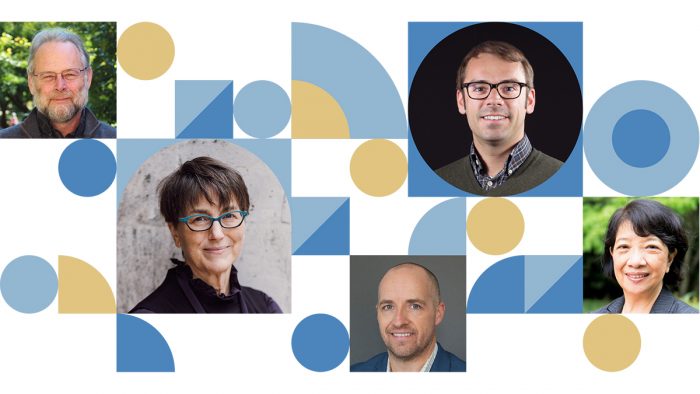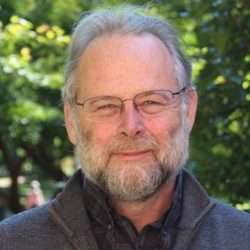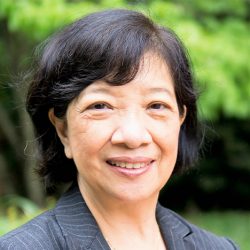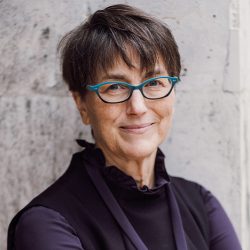Learn about laughing meditation field trips, 30-second personal pitch sessions and other ways these award winners engage students.

Board of Governors’ Award for Excellence in Teaching
The winner receives a citation and a one-time stipend of $12,500. One recipient is selected by each of the 16 constituent institutions of the UNC System.

Geoff Sayre-McCord
Morehead-Cain Alumni Distinguished Professor, College of Arts & Sciences’ philosophy department, faculty member since 1985
Who was the best teacher you had and why?
Very hard to answer, so I mention two: In 6th grade, Ms. Marjorie Watson — she recognized that my failure to progress on the SRA reading assignments was due to boredom with them and not, as others thought, an inability to read. She, wonderfully, asked me to translate some Shakespeare into contemporary English, and I was hooked.
In college, Professor Norman Care, who helped his students see and appreciate that philosophical questions were pressing and important and something that we could ourselves make progress on.
What does it take to be a good professor in 2022?
An appreciation of the value of what you are teaching and an active concern to help others see and appreciate that value.
What’s something creative you’ve done to engage your students?
Fairly recently, I introduced an assignment in my large intro course: Virtue, Value and Happiness. It has the students interview someone at least 20 years their senior about one of the most morally difficult decisions that they have had to face, where the difficulty was in figuring out what the right thing to do was (as opposed to: in getting themselves to do it). The students are then charged with writing up a case report that brings out why that decision was, from that person’s point of view, so difficult. These reports are meant to be exercises in understanding, not in judgment. Later in the course, though, several of these cases are selected and each student needs to wrestle with, and take a stand concerning, what the right thing to do was in the situation described in the case they have chosen to write on.
Something else, of which I am proud, and which was done to engage students, was establishing UNC’s Philosophy, Politics, and Economics Program.
Mentor Award for Lifetime Achievement
This award, created in 1997, acknowledges a lifetime of contributions to a broad range of teaching and learning, particularly mentoring beyond the classroom. It rewards those who help students to develop and attain their full potential in important ways during and after their departure from campus. Dean Smith, long-time coach of the men’s basketball team, was the first winner of the award and exemplifies the qualities that this award honors. The winner receives a one-time stipend of $5,000 and a framed citation.
Jenny Ting
William Kenan Rand Professor of Genetics, School of Medicine’s microbiology-immunology department; program leader, Lineberger Comprehensive Cancer Center; faculty member since 1984

Who was the best teacher you had and why?
A fifth-grade teacher, Mr. Wu. He was a gentle soul who taught us language and rarely reprimanded us, but persuaded students to find out how fun it is to learn Chinese literature.
What does it take to be a good professor in 2022?
Learning all the time, trying to put yourself in the place of your trainee and being empathetic. It’s easier said than done.
What’s something creative you’ve done to engage your students?
For a while, I would get everyone in my group together for a retreat, and each person has to discuss a novel topic of their choosing that they do not work on but are excited about.
William C. Friday Award for Excellence in Teaching
The award was created by members of the 1986 graduating class to recognize members of the faculty who have exemplified excellence in inspirational teaching and is named in honor of William C. Friday, who devoted a lifetime of service to the University as president of the University of North Carolina System. The winner receives a stipend of $5,000 and a framed citation.
Devin Hubbard

Teaching associate professor, UNC-Chapel Hill & NC State joint department of biomedical engineering; lead design engineer, FastTraCS; faculty member since 2014
Who was the best teacher you had and why?
I’ve had a number of “best teachers” — the common threads between them all are that they were:
- Passionate about (learning) their subject.
- Enthusiastic about teaching their subject.
- Able to challenge and empower me (and others) in a way that made me grow and realize my potential.
- Unabashed in allowing their passion and personality to create a contagious enthusiasm for their subject.
The people who have influenced me the most as teachers are: Ms. Louetta Helfrich, Dr. Lillie Doty and Dr. Annie Ross.
What does it take to be a good professor in 2022?
In my humble opinion: empathy. I teach design, and empathy is the core of design, but I also believe it is the core of being a good person, professor and student. I also believe that to be a good professor you have to be a good student — learn from others to pass on that wisdom!
What’s something creative you’ve done to engage your students?
Perhaps not “creative” in the traditional sense, but I feel it’s very important for my students to feel comfortable in my classroom, with public speaking and with providing feedback. On the first day of senior design lab, my students participate in what I would characterize as public speaking boot camp: The goal and promise I make is that all of them will leave my class as confident public speakers. Everyone prepares a 30-second “pitch” about themselves and then delivers it in front of the class. I only give 15 minutes to prepare a single slide and presentation because it is meant to feel impromptu and somewhat ridiculous (i.e. “perfection” is impossible). After each presentation, the class provides constructive feedback in a specific format: all the things they liked followed by the constructive SUGGESTIONS (no criticisms allowed!). Importantly: I do the activity with them, and I stand up and go first.
I find the activity serves 4 major functions:
- Sets the expectation that my students can and should give ME feedback & suggestions.
- Turns the classroom into a place where students encourage and learn from each other, celebrate everyone’s wins and help each other grow.
- Defines the way feedback is given in the classroom going forward.
- Shows everyone that we are all capable of good public speaking.
J. Carlyle Sitterson Award for Teaching First-Year Students
These awards were created in 1998 by the family of the late J. Carlyle Sitterson to recognize excellence in teaching first-year students by a tenured or tenure-track faculty member in the College of Arts & Sciences. Lyle Sitterson was a Kenan Professor of History and Chancellor of the University from 1966-72 and was a passionate advocate for inspired teaching of first-year students. The first award was given in 2000. Two winners will receive a one-time stipend of $5,000 and a framed citation.
Barbara Fredrickson

Kenan Distinguished Professor of Psychology and Neuroscience, College of Arts & Sciences’ psychology and neuroscience department, faculty member since 2006
Who was the best teacher you had and why?
My high school psychology teacher, Mr. Hugh Boedecker, was the first to ignite my lifelong passion for experimental social psychology. His primary mode of teaching was experiential, as week-by-week, we students replicated classic experiments in psychology. As a capstone project, my lab partner and I conducted a field experiment to test our own hypothesis that cues of social class would shape bystander intervention. To do this, we feigned roadside car trouble by popping open the hood of either a newer or older model car, while dressed either professionally or in t-shirts and jeans. Across several days, we recorded how many people stopped to ask if we needed help within the span of an hour (standard answer: “No thanks, her dad is on his way”). Because good or bad weather could be a confounding variable, Mr. Boedecker allowed us to leave school to collect our data on any sunny afternoon that late spring, during our senior year.
What does it take to be a good professor in 2022?
That same emphasis on experiential learning is key. Plus, loads of compassion for all that our students have had to shoulder during these pandemic years. Learning psychology can be a great way to learn how to recover or sustain one’s own mental health.
What’s something creative you’ve done to engage your students?
I’ve long taught a first year seminar on positive psychology. To help convey the benefits of positive emotions, I arrange a field trip to a local yoga studio for a session of “laughing meditation” and participate alongside my students. I schedule this for the same day that students have just turned in a first full draft of their term paper. We collect a little survey data before and after the session to examine the degree to which laughing increased the group’s openness in their thinking or reduced their stress levels. I’ve loved hearing how my students react. One shared with me that she added an impromptu “Laughsgiving” to her family’s Thanksgiving Day feast as a way to share with her family what she’d been learning about positive psychology.
Bud Kauffman

Teaching associate professor of Arabic, College of Arts & Sciences’ Asian and Middle Eastern studies department, faculty member since 2014
Who was the best teacher you had and why?
Mahmoud Al-Batal showed me the energy and enthusiasm that were required to maintain a well-curated classroom environment that was enjoyable and challenging in equal measure.
What does it take to be a good professor in 2022?
To be a good professor in 2022, we must be empathic, flexible and unflinching in our acknowledgement of reality and unyielding in our presumption that our students are doing the best they can, given the circumstances.
What’s something creative you’ve done to engage your students?
In my second-semester Arabic course, students were given a very elementary introduction to the meter and rhyme of classical Arabic poetry and were invited to submit their own creations in a competition. This competition challenged their ingenuity in combining an old and massively complex literary form with the vocabulary and structural know-how of a student in their first year of Arabic. The results were extraordinary, hilarious, sometimes cringe-worthy and absolutely the best thing I have read in a very long time.
Look for 2022 University Teaching Awards stories every day this week. Find the ones you missed.
By The Well
